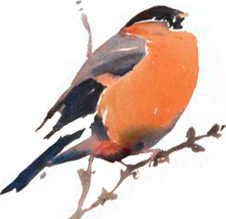There are only 532 Capercaillie left in the UK. That's half the number of birds we had five years ago and the lowest recorded level in the last 30 years. Now one of our most vulnerable bird species, the Cairngorms National Park is the last remaining stronghold for Capercaillie in the UK, with very few birds remaining elsewhere.
Lek It Be this spring
Capercaillie need our help
There are several fundamental issues facing Capercaillie, not least available habitat and predator management. Human disturbance is also pushing Capercaillie closer to extinction as it can stop the birds from breeding, impact their health and cause them to avoid the habitat they need to survive.
Over the last 5 years, the Cairngorms Capercaillie Project, led by the Cairngorms National Park Authority, has been working across all the issues facing Capercaillie and in particular, working with communities across the National Park to enable more people to enjoy the area responsibly and reduce disturbance to Capercaillie.
Lek It Be begins
In 2022, a birdwatcher found on a Capercaillie lek site was arrested for disturbance. Over 15 birdwatchers and photographers found by the project around other lek sites were also at risk of committing a wildlife crime by disturbing breeding Capercaillie. In the same year, the project found that over 60% of commercial operators offering guided wildlife tours in the Cairngorms were looking for Capercaillie during the breeding season or using Capercaillie in their spring marketing. Photographers were also sharing images of Capercaillie and sensitive locations online during the breeding season.
In response, the project launched the Lek It Be campaign to reduce disturbance to Capercaillie during the breeding season and promote adherence to the law. As a protected species, it is a wildlife crime to intentionally or recklessly disturb breeding Capercaillie.
The campaign got off to a good start in 2023 with members of the birding, photography and guiding community quickly spreading the news - asking people to Lek It Be and not go looking for Capercaillie during the breeding season. The vast majority of birdwatchers, photographers and guides responded to the rally cry and left Capercaillie in peace. 67% of commercial operators offering guided wildlife experiences in the Cairngorms also volunteered to become Lek It Be Champions and not look for Capercaillie or use Capercaillie to market their tours.
Less birders, photographers and guides were encountered during the project’s dawn patrols compared to 2022 and all those encountered responded positively to guidance, with the exception of three birders and a wildlife guide who were given appropriate advice by Police Scotland.

Birder illegally on a lek site, shown through thermal imaging
This breeding season
Thanks to the vast majority of birders, photographers and wildlife guides choosing not to look for Capercaillie last year, this breeding season is all about keeping up the good work.
To help, new guidance endorsed by the Scottish Ornithologists' Club, has been published about responsible access in Capercaillie areas. You can find the guidance here. Wildlife guides who are Lek It Be Champions will be leading the way and not looking for Capercaillie. Rangers in the Cairngorms will be on hand from dawn throughout April and May to offer alternative Capercaillie-friendly routes for anyone looking to see other forest species at first light. Police officers will be patrolling paths around lek sites from dawn and CCTV will be in operation. Social media will also be monitored for images of Capercaillie and sensitive locations being shared online.
To find out more about the campaign this year, visit www.LekItBe.scot. Amongst more information about Lek It Be Champions and ways to enjoy Capercaillie virtually this spring, you will find posters to print off and put in places local to you, and social media tiles to share on your own channels to help spread the word and encourage even more people to Lek It Be this spring and leave Capercaillie to breed in peace.

Campaign poster
Carolyn Robertson
Project Manager, Cairngorms Capercaillie Project - Cairngorms Capercaillie Project
All photographs in this article © Cairngorm Capercaillie Project




